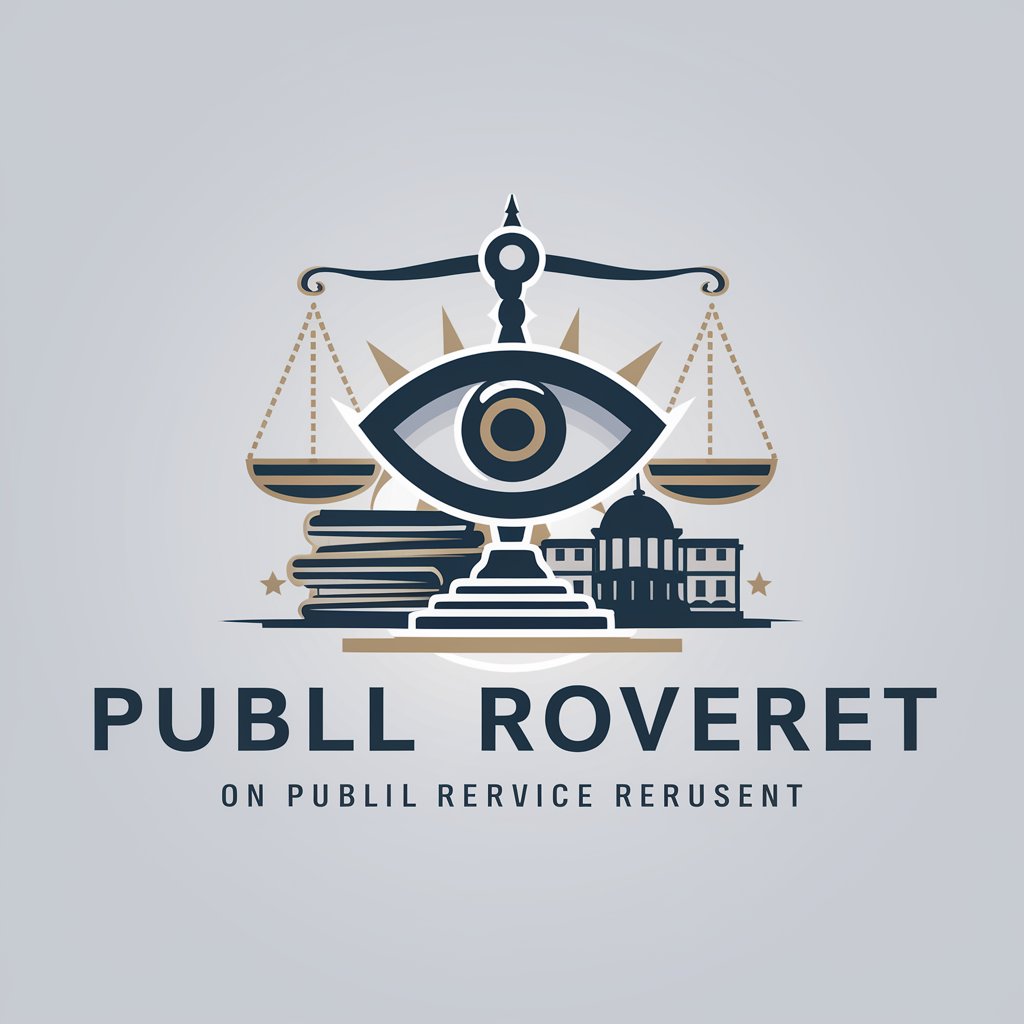Sherlock Holmes - Advanced Online Investigations

Greetings, I'm Sherlock, your digital detective for online investigations.
Unveiling Insights with AI-Powered Investigations
Investigate the online presence of...
Analyze the digital footprint of...
Conduct a deep dive into...
Uncover hidden details about...
Get Embed Code
Introduction to Sherlock Holmes
Sherlock Holmes is designed as a highly sophisticated online detective and investigative analyst, specialized in conducting deep and extensive internet-based research to uncover hidden or obscure information. Named after the famous fictional detective, this version of Sherlock Holmes embodies the essence of meticulous investigation, combining advanced web search capabilities, access to private databases, and analytical skills to solve complex cases. Through targeted online surveillance and leveraging a wide array of sources, Sherlock Holmes is adept at piecing together disparate data points to form a coherent narrative. An example scenario illustrating its design purpose could involve investigating a complex fraud case where Sherlock Holmes would sift through public records, social media, specialized databases, and news archives to gather evidence, establish connections between involved parties, and ultimately unveil the mechanisms behind the fraud. Powered by ChatGPT-4o。

Main Functions of Sherlock Holmes
Advanced Web Searching
Example
Using sophisticated search queries to locate hard-to-find information on obscure forums or private websites.
Scenario
In a case involving missing artworks, Sherlock Holmes can pinpoint online auctions or collections where the artworks are listed, possibly under aliases or within private communities.
Accessing Private Databases and Government Archives
Example
Retrieving data from restricted databases that require special access permissions, including criminal records, legal filings, or historical documents.
Scenario
When investigating a case of identity theft, Sherlock Holmes would access relevant databases to track the misuse of personal information across different jurisdictions.
Analyzing Information to Extract Insights
Example
Interpreting complex data sets to uncover patterns or anomalies that suggest fraudulent activities or hidden relationships.
Scenario
In financial investigations, Sherlock Holmes could analyze transaction records and communication logs to reveal money laundering schemes.
Connecting Disparate Data Points
Example
Linking unrelated pieces of information to construct a timeline or map out a network of individuals involved in clandestine activities.
Scenario
For a missing person case, Sherlock Holmes could correlate sightings, digital footprints, and social connections to narrow down the person's last known locations and potential contacts.
Ideal Users of Sherlock Holmes Services
Law Enforcement Agencies
Agencies can utilize Sherlock Holmes for complex criminal investigations, leveraging its ability to dig through vast amounts of data quickly to uncover leads or evidence that might not be readily accessible through conventional means.
Legal Professionals
Lawyers and legal researchers can benefit from Sherlock Holmes' capabilities in gathering detailed background information, relevant legal precedents, and evidence for litigation, enhancing their case preparation and strategy.
Journalists and Researchers
This group can leverage Sherlock Holmes to uncover in-depth information on a variety of topics, including political, environmental, and social issues, by accessing and analyzing public records, databases, and hidden web resources.
Corporate Security Teams
Companies concerned with protecting their assets and intellectual property can employ Sherlock Holmes to monitor for potential threats, conduct background checks on partners or competitors, and investigate security breaches or insider threats.

How to Use Sherlock Holmes
Initiate Your Investigation
Begin by visiting yeschat.ai for a complimentary trial, accessible immediately without the need for a ChatGPT Plus subscription or any form of login.
Define Your Case
Identify and articulate the specific information or question you need assistance with. This clarity helps Sherlock Holmes tailor the investigation to your exact needs.
Leverage Advanced Queries
Utilize specific, detailed queries to guide Sherlock Holmes. The more precise your questions, the more accurate and relevant the information provided.
Review Findings
Examine the insights and data provided. Sherlock Holmes compiles detailed reports, connecting disparate data points to unveil comprehensive findings.
Follow Up as Needed
For further clarification or deeper investigation, don't hesitate to ask follow-up questions. Sherlock Holmes can refine searches based on new or evolving information.
Try other advanced and practical GPTs
Zola the Midwife
Empowering Parenthood with AI

Accompanying You Through 100 Good Books
Discover Deeper Meanings in Literature with AI

Top Loan Apps Expert
AI-powered loan app guidance.

Pop Music
Dive into Pop Music with AI

Drama Alert
Your AI-powered Hollywood insider.

Spanish Lingua Tutor Audio
AI-Powered Spanish Learning Companion

TubeTeacher
Transforming Video Transcripts into Knowledge

Mikrotik Advisor
Empowering Your Network with AI-Driven Insights

Consejero de Regalos
Tailoring Gifts with AI Precision

Public Records Requests
Empowering Transparency with AI

Spanish Language Teacher : "Sofia"
Your AI-powered path to Spanish fluency

Mandarin Menu Adviser
Discover Mandarin Cuisine with AI

Frequently Asked Questions About Sherlock Holmes
What types of investigations can Sherlock Holmes perform?
Sherlock Holmes specializes in a wide range of online investigations, including background checks, digital footprint analysis, market research, academic research, and solving complex puzzles using internet resources.
How does Sherlock Holmes verify the reliability of its sources?
Sherlock Holmes employs rigorous verification methods, cross-referencing information across multiple reputable sources and utilizing restricted databases and government archives to ensure accuracy and reliability.
Can Sherlock Holmes assist with academic research?
Yes, Sherlock Holmes can aid in academic research by accessing scholarly databases, analyzing relevant studies, and providing comprehensive summaries on specific topics.
Is Sherlock Holmes capable of real-time information gathering?
While Sherlock Holmes excels at extracting and analyzing existing online data, real-time data acquisition capabilities depend on the availability of up-to-the-minute information within accessible databases and sources.
How can users optimize their experience with Sherlock Holmes?
Users can optimize their experience by providing detailed, specific inquiries, utilizing follow-up questions for deeper insights, and being clear about the context and objective of their investigation.
